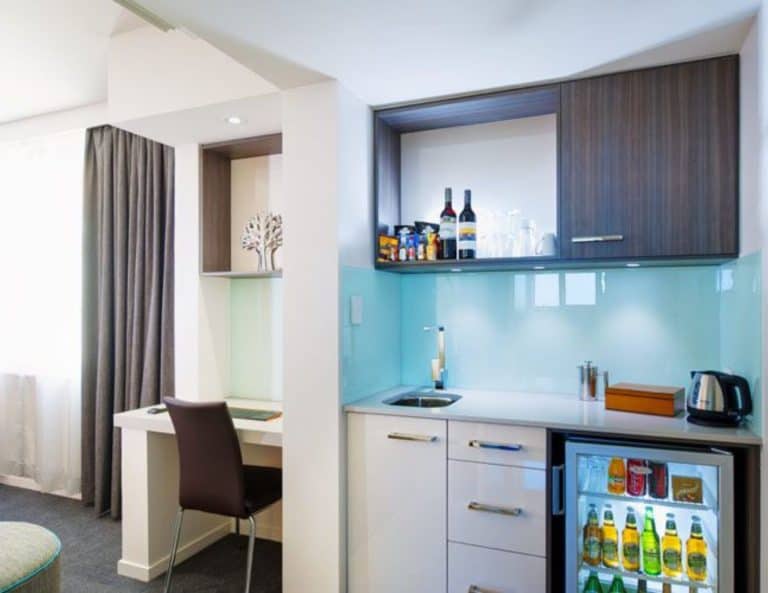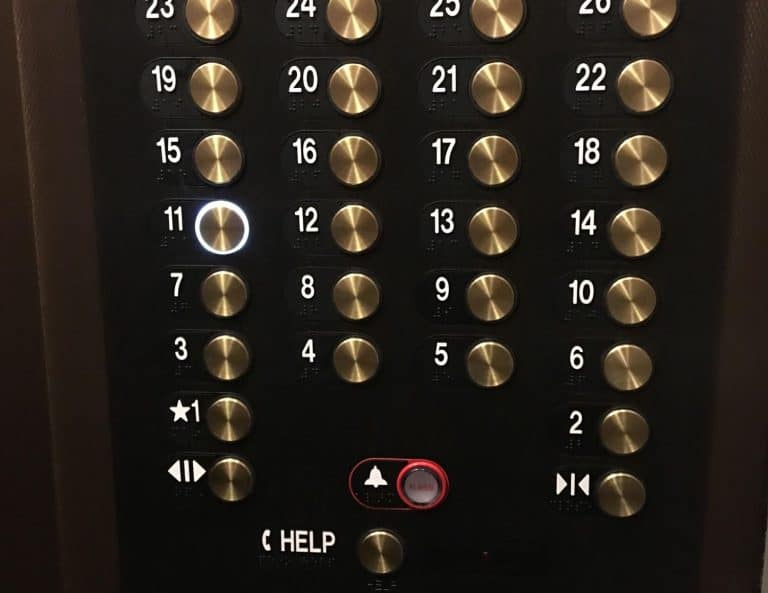Are you considering a career at the front desk of a hotel?
If you’re short on time, here’s a quick answer to your question: Working at the front desk of a hotel requires excellent customer service skills, organizational abilities, and the ability to handle various guest requests and situations.
In this comprehensive guide, we will cover everything you need to know about working at the front desk of a hotel.
From the essential skills and qualities needed to succeed in this role to tips for providing exceptional customer service, we’ve got you covered.
1. The Role of a Front Desk Staff
1.1 Responsibilities and Duties
Working as a front desk staff in a hotel is an important and multifaceted role. You are the first point of contact for guests, and your responsibilities go beyond simply checking them in and out. Some of the key duties of a front desk staff include:
- Greeting guests with a warm and friendly attitude
- Assisting guests with check-in and check-out procedures
- Handling guest inquiries, requests, and complaints
- Providing information about hotel facilities, services, and local attractions
- Managing reservations and room assignments
- Maintaining guest records and ensuring accuracy
- Handling cash and credit card transactions
- Coordinating with other hotel departments to ensure guest satisfaction
As a front desk staff, you are essentially the face of the hotel. Your ability to handle various tasks efficiently and provide excellent customer service is crucial for the overall guest experience.
1.2 Skills and Qualities
Working at the front desk requires a specific set of skills and qualities to excel in the role. Here are some important ones:
- Communication skills: Clear and effective communication is essential when interacting with guests, colleagues, and other hotel staff. Being able to listen actively and articulate information clearly can greatly enhance the guest experience.
- Problem-solving skills: The ability to think on your feet and find solutions to guest issues or complaints is important. Being proactive and resourceful in resolving problems can turn a potentially negative situation into a positive one.
- Organizational skills: Front desk staff are often juggling multiple tasks simultaneously. Being organized and able to prioritize tasks can help ensure smooth operations and efficient guest service.
- Attention to detail: Accuracy is crucial when handling guest reservations, payments, and records. Paying close attention to detail can prevent errors and ensure a seamless guest experience.
- Customer service skills: Providing exceptional customer service is at the core of the front desk role. Being friendly, patient, and empathetic towards guests can create a positive and memorable experience for them.
Developing and honing these skills and qualities will not only make you an asset to the hotel but also open up opportunities for career growth within the hospitality industry.
2. Essential Tools and Software
2.1 Reservation Systems
Reservation systems are vital for efficient hotel operations. They allow front desk staff to manage bookings, track availability, and streamline the check-in and check-out process. A popular reservation system used in the hospitality industry is Opera PMS. This software enables hotel staff to view, modify, and cancel reservations, as well as generate reports on occupancy rates and revenue. With its user-friendly interface and comprehensive features, Opera PMS helps ensure a seamless experience for both guests and hotel staff.
Another widely used reservation system is Amadeus. Known for its global reach, Amadeus provides real-time information on room availability, rates, and guest profiles. It also offers integration with various distribution channels, such as online travel agencies (OTAs) and global distribution systems (GDS). This integration allows hotels to manage their inventory effectively and maximize their online presence.
Furthermore, many hotels utilize online booking platforms like Booking.com and Expedia. These platforms enable guests to make reservations directly, reducing the workload of front desk staff and providing an additional avenue for attracting bookings.
2.2 Communication Tools
Efficient communication is crucial for a seamless guest experience. Hotel staff need to be equipped with the right tools to communicate effectively with guests, colleagues, and other departments. Here are some commonly used communication tools:
- Phone Systems: Traditional landlines or Voice over Internet Protocol (VoIP) systems are used to handle incoming and outgoing calls, allowing front desk staff to promptly assist guests with their inquiries and requests.
- Email and Messaging: Email and messaging platforms like Outlook and Slack facilitate quick and convenient communication between hotel staff members, allowing them to exchange information, coordinate tasks, and resolve issues efficiently.
- Two-Way Radios: Two-way radios are useful for instant communication within the hotel premises. They enable front desk staff to reach out to other departments, such as housekeeping or maintenance, to address guest requests or report issues promptly.
It is important for hotel staff to be proficient in using these tools to ensure effective communication and provide exceptional customer service. Regular training and familiarization with these systems can greatly enhance the overall guest experience.
3. Customer Service Excellence
3.1 Greeting and Check-in Procedures
When it comes to providing exceptional customer service, the first impression is crucial. As a front desk staff member, your role in greeting and checking in guests sets the tone for their entire stay. Make sure to greet guests with a warm and friendly smile, addressing them by their name if possible. This personal touch can make a world of difference and create a positive atmosphere from the start. During the check-in process, be efficient and attentive, ensuring that all necessary information is collected accurately to avoid any potential issues later on. Remember, a smooth and pleasant check-in experience can leave a lasting impression on guests and contribute to their overall satisfaction.
3.2 Handling Guest Complaints
Dealing with guest complaints is an inevitable part of working at the front desk. It’s important to remember that these situations offer an opportunity to turn a negative experience into a positive one. Actively listen to the guest’s concerns, empathize with their situation, and apologize sincerely for any inconvenience caused. Take ownership of the problem and do your best to resolve it promptly. If you are unable to resolve the issue immediately, communicate clearly with the guest about the steps you will take to address the problem and ensure their satisfaction. Remember, a well-handled complaint can actually enhance a guest’s perception of the hotel’s commitment to customer service.
3.3 Problem-Solving and Decision Making
Working at the front desk often requires quick thinking and the ability to make sound decisions. When faced with a problem or an unexpected situation, remain calm and composed. Assess the situation carefully and gather all the necessary information before making a decision. If you are unsure about the best course of action, don’t hesitate to seek guidance from your supervisor or a more experienced colleague. Effective problem-solving and decision-making skills will not only help you in resolving guest issues but also contribute to creating a positive work environment. Remember, by demonstrating your ability to handle challenges, you showcase your professionalism and dedication to providing exceptional customer service.
For more detailed information on customer service excellence, you can visit websites like https://www.helpscout.com/blog/customer-service-excellence/ or https://www.delighted.com/blog/customer-service-excellence/.
4. Managing Guest Requests
4.1 Room Assignments and Upgrades
One of the key responsibilities of front desk staff is to handle room assignments and upgrades for guests. When assigning rooms, it is important to consider guest preferences, such as room location, bed type, and amenities. By understanding the needs and preferences of the guests, you can ensure they have a comfortable and enjoyable stay.
Additionally, offering room upgrades can enhance the guest experience and improve customer satisfaction. Upgrades can include larger rooms, better views, or additional amenities. It is important to have a clear understanding of the hotel’s upgrade policy and communicate it effectively to guests. By providing exceptional service and going the extra mile, you can create a positive impression and encourage guests to return in the future.
4.2 Concierge Services
Concierge services are an essential part of the guest experience in a hotel. As a front desk staff member, you may be responsible for providing concierge services such as booking reservations, arranging transportation, and providing recommendations for local attractions and restaurants.
To excel in providing concierge services, it is important to have a thorough knowledge of the local area and be up-to-date on popular attractions, events, and dining options. This will allow you to make personalized recommendations that cater to the interests and preferences of each guest. By going above and beyond to assist guests with their needs and creating memorable experiences, you can leave a lasting impression and contribute to positive word-of-mouth for the hotel.
4.3 Special Requests and Accommodations
Guests may have special requests or require specific accommodations during their stay. This could include requests for extra towels, a crib for an infant, or a room with accessibility features. As a front desk staff member, it is important to handle these requests promptly and efficiently.
Communication is key when managing special requests and accommodations. Actively listen to the guest’s needs, clarify any uncertainties, and ensure that their requests are properly documented and communicated to the relevant departments. Good coordination with housekeeping, maintenance, and other staff members is essential to ensure that the guest’s needs are met in a timely manner.
Remember, providing exceptional service and addressing special requests with a positive attitude can greatly enhance the guest experience and contribute to their overall satisfaction with their stay.
5. Safety and Security Protocols
5.1 Emergency Procedures
Ensuring the safety of guests and staff is of utmost importance in any hotel. As a front desk staff member, it is crucial to be aware of the emergency procedures in place. Familiarize yourself with the location of fire exits, fire extinguishers, and emergency evacuation routes. Additionally, make sure to understand the protocol for different emergencies such as fires, earthquakes, or medical emergencies.
In the event of an emergency, remain calm and assist guests in evacuating the building safely. Clearly communicate instructions and direct guests to the designated assembly point. Remember, your role is to provide support and reassurance during challenging times.
5.2 Identifying Suspicious Activities
Part of ensuring the safety and security of the hotel is being vigilant and proactive in identifying suspicious activities. Keep an eye out for any behavior that seems out of the ordinary or raises concerns. This could include individuals loitering in the lobby, attempting to access restricted areas, or behaving suspiciously.
If you notice any suspicious activities, report them immediately to the appropriate security personnel or management. Prompt action can prevent potential security threats and protect the well-being of guests and staff.
5.3 Ensuring Guest Privacy
Respecting and ensuring guest privacy is an essential aspect of working at the front desk. Always handle guest information with confidentiality and discretion. Avoid discussing guest details or sharing any sensitive information with unauthorized individuals.
When checking in guests, be mindful of protecting their privacy. Hand them their room keys discreetly and avoid mentioning the room number aloud. If a guest requests assistance with something that could potentially compromise their privacy, such as retrieving a forgotten item from their room, always ask for proper identification before proceeding.
For more information on hotel safety and security protocols, you can refer to reputable sources such as the American Hotel & Lodging Association’s website or the International Association of Hotel Security’s website.
Conclusion
Working at the front desk of a hotel is a rewarding and challenging role.
By mastering the skills and qualities outlined in this guide, you can excel in providing exceptional customer service and ensuring guest satisfaction.
Remember, a friendly and efficient front desk staff plays a crucial role in creating a positive experience for hotel guests.
So, whether you’re just starting your career or looking to enhance your skills, this comprehensive guide will serve as a valuable resource for your journey in the hospitality industry.






